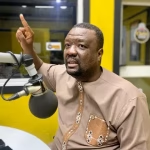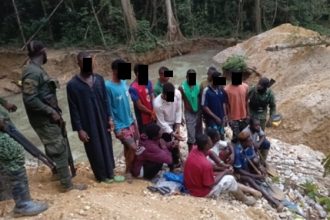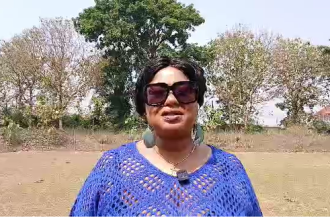The Minority has expressed shock at the Special Prosecutor’s claim that he cannot investigate financial and economic crimes.
Citing the recent Power Distribution Services (PDS) concessionaire which has been suspended over suspected fraud, Martin Amidu said section 79 of the Office of the Special Prosecutor Act, 2017 (Act 959) puts “very limited jurisdiction” on his office.
He said, in the past week, the PDS saga has, probably with all good intentions, been misrepresented, to the public and creating in their minds the belief that the Office of Special Prosecutor has the power to investigate and prosecute fraud, and general financial and economic crimes.
“Such continued misrepresentation of the jurisdiction of the Office to the public is responsible in part for the acceptance by some members of the public that the Office is not meeting the expectations for which reason they advocated for its establishment and the appointment of the Special Prosecutor,” Mr Amidu said in an article concerning the issue.
He said the ruling of the High Court in the case of the Republic v Ayariga and 1 Other by an Accra High Court, underscored his point on the remit of the Office to a limited extent only based on lack of detailed particulars and should be a guide to the public.
I can’t probe PDS case – Martin Amidu sheds light on his jurisdiction
Bawku Central MP, Mahama Ayariga is being prosecuted by the Special Prosecutor for evading tax and dealing in foreign currency without a license.
But the Minority disagree with the Special Prosecutor.
Ranking Member on Parliament’s Constitutional and Legal Affairs Committee, Inusah Fuseini, said the law establishing the office gives Mr Amidu the mandate to investigate corruption and corruption-related offences.
“The law did not create a new gamut of offences. It simply specified the area of offences which in the view of the lawmakers are corruption-related offences…so to say that ‘I don’t have the mandate to prosecute economic crimes’ is to create a fallacy to beg the question,” he said.
Mr Fuseini who is also Tamale Central MP, in reference to the Ayariga case said, the court did not say the Special Prosecutor cannot investigate Ayariga.
“What the court said in the Ayariga case is that Martin Amidu cannot go to court to prosecute a person solely on them but cannot prosecute him solely on the commission of a financial crime or on economic crime.”

The concession agreement with PDS has been suspended
This means that Mr Amidu has to demonstrate in court that the commission of that crime will lead to corruption or is corruption-related.
“That is the burden that is imposed on him by the law,” Mr Fuseini explained.
In a response to the question of whether it was necessary for the Special Prosecutor to investigate the PDS issue when the Criminal Investigation Department of the Police Service is already on the case, the MP said nothing stops Mr Amidu from requesting for a transfer of the case as the law gives him the right to.
“Act 959 gives the special prosecutor the authority to demand the transfer of a case to the office of the Special Prosecutor if in his view that case is corruption and corruption-related.
But a private legal practitioner, Martin Kpebu says the Special Prosecutor has a point.
He said the definition of corruption and corruption-related offences in Section 97 Act 959 of the Special Prosecutor’s Act restricts Mr Amidu.
“The controlling word there (in the Act) is Means…it says corruption and corruption-related offences mean offences under…then there is a list. There is a Supreme Court decision that says that when it comes to the definition of words and the word means is used then it means you are restricted to what has been listed there.
“If they had said corruption and corruption-related offences include then there is leeway but once they said mean, so far I think that Mr Amidu has a point,” he explained.
The best way to settle the issue, in Mr Kpebu’s view is to seek a clearer meaning in court.
















